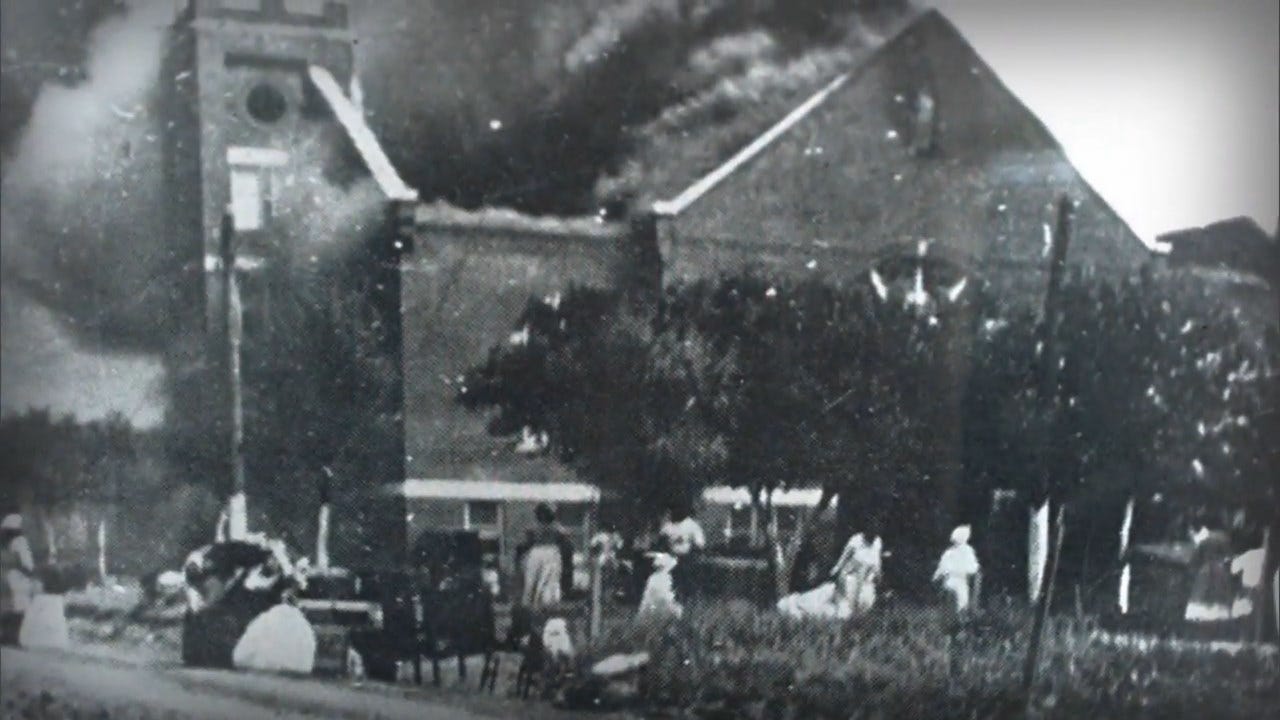Possible Mass Grave From 1921 Tulsa Race Massacre Found: 'For Decades It Was Hush Hush'
Scientists in Oklahoma are one step closer to finding possible evidence of mass graves linked to the deadly race massacre of 1921.Tuesday, December 17th 2019, 1:46 pm
Scientists in Oklahoma are one step closer to finding possible evidence of mass graves linked to the deadly race massacre of 1921. Researchers in Tulsa used ground penetrating radar to survey two sites and found irregularities that could be consistent with large-scale burials.
The neighborhood of Greenwood was known as black Wall Street. Restaurants, grocery stores and tailors were all black-owned businesses. In 1921 a white mob burned much of the Tulsa neighborhood to the ground, and some say as many as 300 black residents were killed. Almost forgotten by history, the city is trying to uncover the past and heal the wounds.
Photojournalist Kavin Ross said he's grateful that a tragic, little known part of Tulsa history is now coming to light.
"For decades it was hush-hush," Ross told CBS News correspondent Omar Villafranca. "Even some of the survivors that I interviewed, they were quiet and telling me, 'Oh and the white people—' They were whispering in their own homes because they were brought up not talking about what happened.'"
The white mob clashed with several armed black men who had gathered to protect a black shoe shiner who was unjustly accused of assaulting a white woman. After a shot was fired, violence broke out and hundreds of black people were massacred.
Ross' great-grandfather was forced to flee the city after his business was destroyed.
"You had explosions. You had people running for their lives. It was just hell on earth," Ross said.
The horror was brought to life in the premiere episode of HBO's new series "Watchmen." Witnesses reported seeing bodies put in mass graves, but local officials hid evidence of any crimes.
At a public forum Monday, scientists confirmed they discovered what appears to be an underground pit roughly 30 by 25 feet, which they said is large enough for up to 100 bodies.
"But I'm as confident as I can be in the results that this is a very big candidate for something associated with the massacre," said Scott Hammerstedt, senior researcher at the Oklahoma Archeological Survey.
"That's very powerful. That's the first time that we've had anyone say that from a technical standpoint in an open forum, in a meeting like this or to us," Tulsa Mayor G. T. Bynum said.
Scientists are now planning to do additional surveys that could lead to excavations.
"Even if the preservation is truly excellent, we don't know who we'll find in there," University of Florida forensic anthropologist Phoebe Stubblefield said.
Ross said he'd like to see excavations by the spring.
"You know we waited this long. We know where they are. Let's go get them," Ross said.
If a mass grave is found, members of the black community in Tulsa said they'd want the remains relocated to the Vernon A.M.E. Church, where its basement was one of the few places that survived the destruction. It would be part of a memorial.
More Like This
December 17th, 2019
January 2nd, 2025
September 29th, 2024
September 17th, 2024
Top Headlines
 Oklahoma Forestry Director's firing sparks negative reactions among firefighters and state officials
Oklahoma Forestry Director's firing sparks negative reactions among firefighters and state officials
March 30th, 2025
March 30th, 2025









